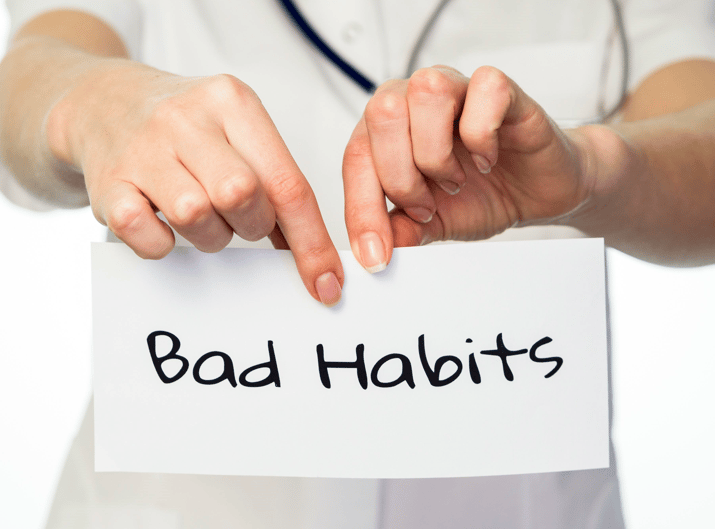- Let ́s Go Forever in 5 minutes
- Posts
- O poder do hábito na nossa saúde
O poder do hábito na nossa saúde
The Power of Habit in Our Health
[ENGLISH BELOW]
[PORTUGUÊS]

freepik
O que você vai encontrar nessa Newsletter em 5 minutos ou menos?
O que realmente é um hábito.
As armadilhas da mente para te prender em alguns hábitos
O impacto dos hábitos aparentemente inofensivos na nossa saúde
Você já parou para pensar no que é um hábito?
Os hábitos são ações que realizamos sem pensar, de forma automática e repetitiva em nossas vidas. Eles podem ser classificados como bons, ruins ou neutros, dependendo do impacto que têm em nossa saúde e bem-estar.
Por exemplo:
Ao acordar, você escova os dentes: hábito neutro (ou até bom, afinal, higiene bucal é importante!).
No caminho para o trabalho, você sempre para na cafeteria e compra um pão de queijo: hábito ruim.
Na sua agenda, há um espaço reservado para praticar atividade física 4 vezes por semana: hábito bom.
Os hábitos são formados por uma complexa interação entre nosso corpo e mente. Nossa mente busca automatizar nossas atividades visando o prazer, a satisfação e o menor gasto de energia possível. Embora isso faça parte de nossa evolução, no mundo moderno, pode nos colocar em risco, levando a diversas doenças e complicações de saúde.
Imagine um looping entre corpo e mente:

O ciclo se fecha quando o hábito está formado. Para quebrá-lo, é necessário perceber que estamos no "piloto automático" de nossa mente e ter força de vontade para resistir ao estímulo. A recompensa, ou a sensação de satisfação, torna o estímulo ainda mais poderoso da próxima vez.
Muitas vezes, nem percebemos que estamos agindo por hábito. Assistir à Netflix no mesmo horário todos os dias ou todos os finais de semana é um hábito, por exemplo.
E qual a relação dos hábitos com a saúde?
Os hábitos podem ser positivos ou negativos. Infelizmente, tendemos a desenvolver hábitos negativos em relação à nossa saúde, pois são mais simples e oferecem recompensas imediatas. Porém, esses pequenos hábitos, ao longo do tempo, podem resultar em doenças crônicas.
É importante prestar atenção às nossas ações diárias e verificar se estão alinhadas com nosso propósito de vida. Uma das melhores estratégias para quebrar um hábito ruim é substituí-lo por um hábito bom.
Se você está interessado em aprender mais sobre esse tema fascinante, recomendamos assistir ao vídeo de 8 minutos abaixo, com o autor James Clear, especialista em hábitos.
Faça pequenas mudanças em sua vida hoje para colher grandes resultados no futuro!
Para mais detalhes sobre como construir um estilo de vida favorável à longevidade saudável, responda esse e-mail e peça o e-book LET´S GO FOREVER - THE PLAYBOOK #1.
__________________________________________
Vamos nos conhecer e aprender formas diferentes de cuidarmos da nossa saúde, independente da sua idade através da #LetsGoForever, uma comunidade voltada a disseminar os comportamentos necessários para o desenvolvimento de uma Longevidade Saudável.
[ENGLISH]
The Power of Habit in Our Health

freepik
What will you find in this Newsletter in 5 minutes or less?
What really is a habit.
The mind traps to keep you stuck in some habits.
The impact of seemingly harmless habits on our health.
Have you ever stopped to think about what a habit really is?
Habits are actions that we perform without thinking, automatically and repetitively in our lives. They can be classified as good, bad, or neutral, depending on the impact they have on our health and well-being.
For example:
When you wake up, you brush your teeth: neutral habit (or even good, after all, oral hygiene is important!).
On the way to work, you always stop at the café and buy a cheese bread: bad habit.
In your schedule, there is a reserved time for physical activity 4 times a week: good habit.
Habits are formed by a complex interaction between our body and mind. Our mind seeks to automate our activities aiming for pleasure, satisfaction, and the least energy expenditure possible. Although this is part of our evolution, in the modern world, it can put us at risk, leading to various diseases and health complications.
Imagine a loop between body and mind:

The cycle closes when the habit is formed. To break it, it is necessary to realize that we are in the "autopilot" of our mind and have the willpower to resist the stimulus. The reward, or the feeling of satisfaction, makes the stimulus even more powerful next time.
Often, we don't even realize that we are acting out of habit. Watching Netflix at the same time every day or every weekend is a habit.
And what is the relationship between habits and health?
Habits can be positive or negative. Unfortunately, we tend to develop negative habits because they are simpler and offer immediate rewards. However, these small habits over time can result in chronic diseases.
It is important to pay attention to our daily actions and check if they are aligned with our purpose in life. One of the best strategies to break a bad habit is to replace it with a good one.
If you are interested in learning more about this fascinating topic, we recommend watching the 8-minute video below, with author James Clear, a habits expert.
Make small changes in your life today to reap big results in the future!
For more details on how to build a lifestyle conducive to healthy longevity, reply to this email and request the e-book LET´S GO FOREVER - THE PLAYBOOK #1.
__________________________________________
Let's get to know each other and learn different ways to take care of our health, regardless of your age through #LetsGoForever, a community focused on disseminating the necessary behaviors for the development of Healthy Longevity.